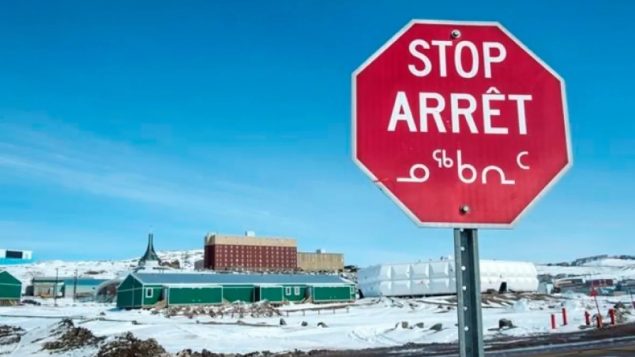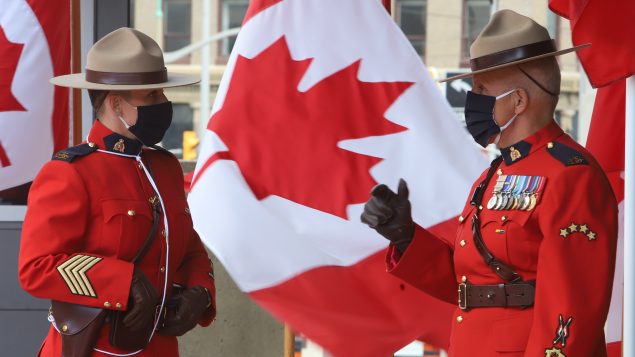A report released today says RCMP strip searches policies are “unclear and inadequate” and says the force needs to do a better job in how it trains its officers to carry out the controversial–and often maligned–practice that Canada’s Supreme Court once called “inherently humiliating and degrading.”
“The commission found that the RCMP’s national personal search policy (including cell block searches) is unclear and inadequate,” notes the report, by the Civilian Review and Complaints Commission (CRCC), the force’s watchdog.
“The RCMP’s inability to evaluate and report on policy compliance has a chilling effect on public accountability, self-evaluation and independent review,” the report says.

A report by Civilian Review and Complaints Commission for the RCMP released today cited the detachment in Igaluit for special mention for its mishandling of strip searches. (David Gunn/CBC)
The commission found that the rationale and documentation for strip searches “is often lacking,” and it specifically called out the detachment in Iqaluit, the capital city of Nunavut, where members removed bras.
The CBC’s Catharine Tunney writes that in one 2015 case, the report says officers forcibly removed a woman’s bra and left her topless in cells.
The woman broke her arm as she tried to resist the officers removing her undergarment and medical care was not provided within a reasonable period.
“Women, both cisgender and transgender, taken into police custody are often from marginalized groups, survivors of gender-based violence and in Canada, they are disproportionately from Indigenous communities,” the report reads.
“When these already vulnerable women are forced to remove their bras, there is heightened risk that they will be further traumatized.”
Noting that many officers are not aware of personal strip search policies and there is no mandatory training beyond basic instruction to cadets at the RCMP depot, the commission recommends the force institute specialized supervisory training on personal searches from senior personnel.

Inuit in Nunavut, especially women, suffer systemic police abuse, including excessive violence and persistent racism, territory’s legal aid agency said in June. A new report from the RCMP’s civilian watchdog notes a mishandling of strip searches in the capital, Iqaluit. (THE CANADIAN PRESS/Paul Chiasson)
“The commission is particularly concerned with the inadequate supervision of members, lack of articulation on files, and overall lack of knowledge of what constitutes a strip search at the Iqaluit detachment. Interviews revealed that bras are routinely removed and searches are video-recorded,” notes the report.
In a letter last month to the CRCC’s chairperson, Michelaine Lahaie, RCMP Commissioner Brenda Lucki said she agreed with most of the report’s findings but disagreed with a recommendation that the force develop specific supervisor training regarding duties and responsibilities with personal searches because new policies are already in place.
“Since the commission completed its review, there have been changes to the cadet training program specific to personal searches and further revisions are to be completed in this fiscal year,” Lucki wrote.
“However, as I have written in this response, further revisions of the national policy are required to address the related recommendations in this report.”
Tunney writes that today’s findings follow up on a 2017 report that found “significant shortcomings” in the RCMP’s personal search policies, which included strip searches, adding that both CRCC reviews follow a 2001 Supreme Court case that ruled that strip searches are “inherently humiliating and degrading.”
With files from CBC News (Catharine Tunney)







For reasons beyond our control, and for an undetermined period of time, our comment section is now closed. However, our social networks remain open to your contributions.